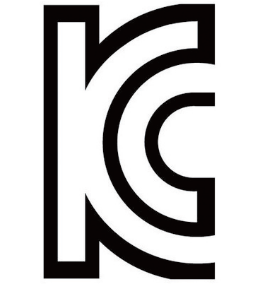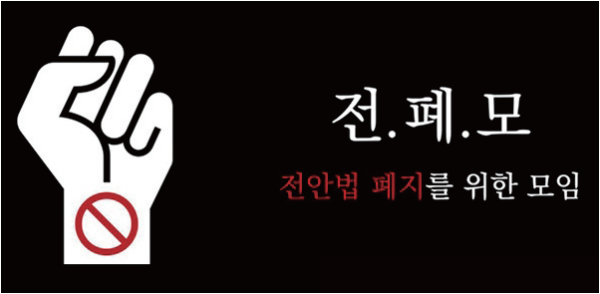When the new semester is coming, most students will buy new clothes, shoes, and bags. Thanks to the cheaper cost, many people prefer to buy goods on the Internet. As the Electric Goods and Household Safety Control Act is adopted, however, the utilization of online markets may decrease and people will feel uncomfortable using online shopping malls. The Sungkyun Times (SKT) informs Kingos about new amendment in Korea, postponed implementation due to its limitation, and what to do during the one year grace period.
Electrical Goods and Household Safety Control Act: What Is It?
Definition and Explanation
The Electrical Goods and Household Safety Control Act is an act in Korea which was supposed to be implemented from January 28, this year. It is an amendment to the Electrical Appliances Safety Control Act, which was already implemented in 2015. The Quality Management and Industrial Product Safety Management Act was added to the former law for the purpose of protecting the lives, bodies, and property of citizens and protecting the interest and safety of consumers. In other words, the Electrical Goods and Household Safety Control Act is a combination of the Electrical Appliances Safety Control Act and the Quality Management and Industrial Product Safety Management Act. This law was passed after the Korean government started to concentrate on intensifying safety standards, not only for electrical goods, but also for daily supplies, in particular, after the incidents in Korea caused by the humidifier sterilizer, Oxy.

Detailed Contents of Amendment
• Obligation to Show the Korea Certification Mark and the Online Market
The Korea Certification Mark, in short the KC Mark, is given when a product is validated for buoyancy, durability, and safety for the human body through certain processes. It is an integration of various certification marks which were implemented by five departments such as the Ministry of Knowledge Economy, the Ministry of Labor/Environment, the Korea Communications Commission, and the National Emergency Management Agency. In the past, the objects of inspection were limited to electrical goods and baby products such as automobiles, home appliances, fire extinguishers, and strollers. After adding the Quality Management and Industrial Product Safety Management Act, however, clothing, shoes, and minor arts and crafts need the KC Mark, so retailers of online shopping malls are also trying to register. This is because products without the KC Mark are prohibited from being manufactured, imported, and sold.
• Obligation of Holding Supplier Certificate of Conformance Related to Household Goods
The Supplier Certificate of Conformance is a system where the supplier confirms whether his or her product meets safety standards by testing products themselves or requesting the test to a third party. After confirmation of the process, suppliers should keep the certificate of each product which contains detailed information about passing the safety test. The products without a Supplier Certificate of Conformance are immediately removed from the registered products list.
Limitation of the Amendment and Decision to Postpone
Difficulties that the New Amendment Will Cause
•Small Business
The amount needed to get the KC Mark for one product could be anything from 60,000 to several million won. It means that a small business would bear the cost of two to five million won to release about 20 products a day. In the case of clothing, the commission is imposed for each different fabric. For example, if five different fabrics were used for making a T-shirt, a merchant should pay the commission for each of the different types of fabric. Additionally, a small business has to pay commission for different colors of the same clothing and same fabric. Some places where people can easily see extremely cheap clothing valued at about 5,000 for a t-shirt such as at Dongdaemun Market, small business especially suffer from serious deficit due to the expensive cost of the KC Mark certification. What is worse, small businesses should pay fines of up to 5 million when the products do not have the KC Mark. In contrast, getting a KC Mark or Supplier Certificate of Conformance is relatively easier for major companies and department stores because they have enough assets to immediately acquire the equipment for safety inspection. As inspection equipment can reach to billions of won, however, small business merchants will have difficulties affording it. The length of time needed to wait for product certification is also a serious problem.
The new amendment also causes issues for the parallel importers who import famous brands’ products and sell them in Korea. Clothing and footwear of the brands Nike and Adidas are representative examples of parallel import products. After the amendment has taken effect, parallel importers should get product certification from the manufacturer abroad. Getting a certification from the manufacturer, however, is difficult because parallel imports pass through complicated distribution processes. The government has perhaps made an error in that the new amendment destroys the parallel import industry which was designed to prevent the monopoly of major companies.
Overseas direct purchase businessmen cannot sell uncertificated products after the amendment. Conversely, overseas direct purchase websites such as Amazon, Alibaba, and Rakuten will not be affected. In regards to this matter, direct purchase businessmen claim that it is terrible reverse discrimination as they will clearly fall behind in the competition with the overseas direct purchase websites. Meanwhile, conflicts between Korean social commerce open markets like G-market, 11th Street, and the suppliers, are getting worse. The operators of social commerce and the open market constantly require product certification, but the suppliers cannot afford it.
Fundamentally, the standard explaining about who should take responsibility of product certification is quite vague. In the case of clothing, generally the fabric company has the responsibility to afford the cost of certification, not the traders. In Korea, however, it is not designated as mandatory. In other words, if a fabric company imputes the certification process to small business traders, then they should pay the whole expense and take responsibility for the product certification. In cases of products being imported from overseas, if the original overseas manufacturer did not get the safety certification, then the reseller in Korea should take the responsibility.
•Consumer
After the announcement of the new amendment, online shoppers have started to worry about inflation. As the cost of online shopping products is relatively cheaper than the real market, many consumers enjoy shopping through online shopping malls. Despite the economic depression last year, the utilization of online shopping sites increased by approximately 18%. It clearly showed that many consumers prefer online shopping. If commission is added, however, then the cost of products will increase. Consumers feel especially angry due to the fact that the target of inflation is household goods, clothing, and small arts and crafts which are closely related with daily lives. Moreover, distrust of citizens towards the KC Mark’s effectiveness is also growing stronger. This is because Oxy, a humidifier sterilizer that has caused the deaths of several Korean citizens and the Galaxy Note 7 smartphone battery that exploded on a flight, were also certificated with the KC Mark. The suppliers can entrust the product inspection to the private institution, although it is not certified by the government. It means that the validity of certification procedures has not been proven. Therefore, corruption and lobbying can occur since the Supplier Certificate of Conformance Test can be implemented by requesting it to a third party.
The reason why this amendment is controversial is that it was implemented without hearing the public opinion. In other words, a public hearing was omitted and it was passed by the agreement of a few lawmakers, although it should have had a public hearing since the act is a general revision. Therefore, most resellers and merchants, and members of the National Assembly, did not know about the new amendment.
One Year for a Decision to Postpone
A movement of small businesses and citizens who criticize this amendment has become stronger. They claimed that the certification for electronic and baby goods was needed since these are directly connected with people’s lives, but they considered that clothing or arts and crafts are too minor to be certificated. The public meeting opposed to the Electronic Goods and Household Safety Control Act was held and 10,000 people participated in a signature campaign against the amendment in one day and the eventual number reached almost 15 million. Furthermore, lots of people posted and shared pictures and letters about the amendment while a member of the National Assembly uploaded posts opposing to the amendment on his blog. Finally, the government decided to postpone and start the amendment from January 1st, 2018. For now, the postponement applies only to the article which claims to have the certificate mandatorily. Namely, certification of the KC Mark and the Supplier Certificate of Conformance matter still has compulsion.

Endless Controversy Regarding the Amendment and Postponement Decision
Conflicts about the Amendment and the Decision to Postpone
•Positive
People who agree with the amendment insist that it is difficult to blame the purpose of the new amendment because it was revised to guarantee the consumer’s safety. They said that the certificate system already exists and that the amendment just enforces a crack down on daily goods which were not forcibly included in the past.
•Negative
A small businessman said, “Because of the amendment, I’m in danger of losing my job. I feel more devastated since this is closely related to our lives.” Additionally, some people claim that this bill may be revised for major companies and department stores in order to create a monopoly, as certification is extremely expensive. Moreover, there are fundamental problems surrounding the decision to postpone. Despite the postponement, cases of imposing fines and an administrative crackdown are already occurring in some areas. Furthermore, it did not reflect concerns of overseas direct purchases and buying services. Overseas direct purchases and buying services will be damaged because the acquisition of a certificate is almost impossible for them. If adequate solutions are not proposed, there will not be any differences and it will be considered a meaningless delay.
There are some movements against the amendment and its postponement. One Korean party called the Bareun party is composing a task force for immediate revision of the amendment with small business researchers. Global Seller Lab, a Korean company, is also preparing a constitutional appeal for the reason that it violates the liberty of occupational selection.
A One Year Grace Period, What Should Korea Do?
The Korean Government should prepare a guideline which proposes the clear certification criteria for each type of product to help small businesses avoid the chaos. In addition, the government should expand the number of certificate organizations for traders to reduce wasted time caused by long certificate process. Using a principle of UNI PASS, introduced by the Ministry of Food and Drug Safety (MFDS) can be a realistic alternative. UNI PASS is a system which automates the certificate procedure through the Internet, and allows people to feel more comfortable by omitting a direct visit. When an overseas beverage imported by a purchase agent became a problem, the MFDS considered the small business’s stance and turned the certification system into the registration of UNI PASS. This principle can be applied to this problem. Finally, the certification and testing procedures should be clear for customers. The most important thing is, however, preparing to listen to public opinion, and communicating with the public before any minor changes take place.
There is a saying that “unjustifiable law is violence.” The purpose of the amendment is reasonable, however, the law should also protect the merchants in addition to the consumers. If the government wants to protect citizens, it should keep in mind that unfair law can also become a threat to them. Therefore, the Korean Government has to prepare sensible alternatives to protect their citizens including consumers and merchants from the new amendment.
